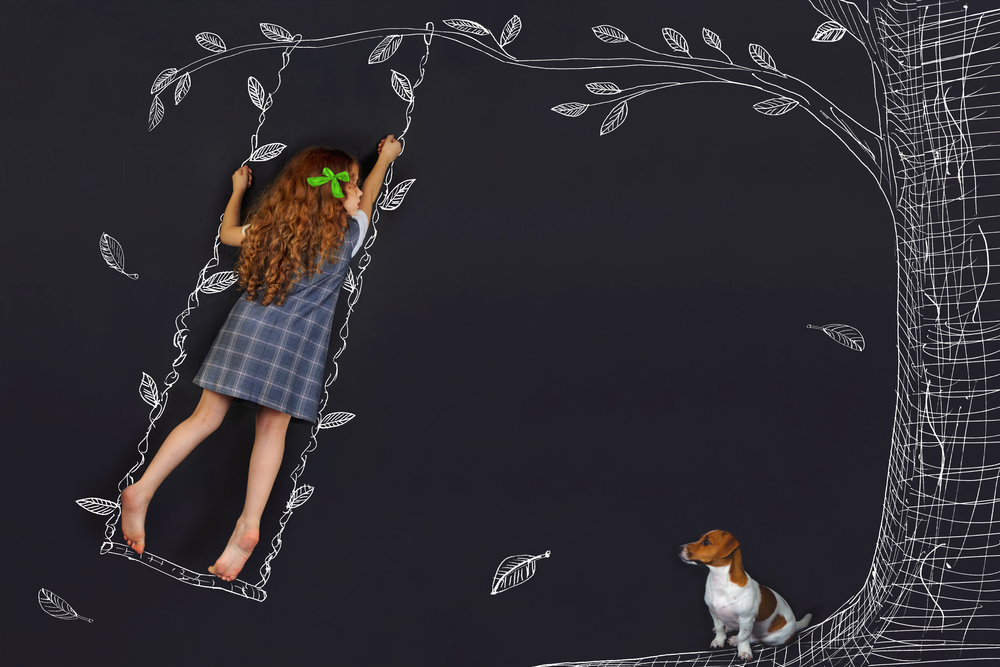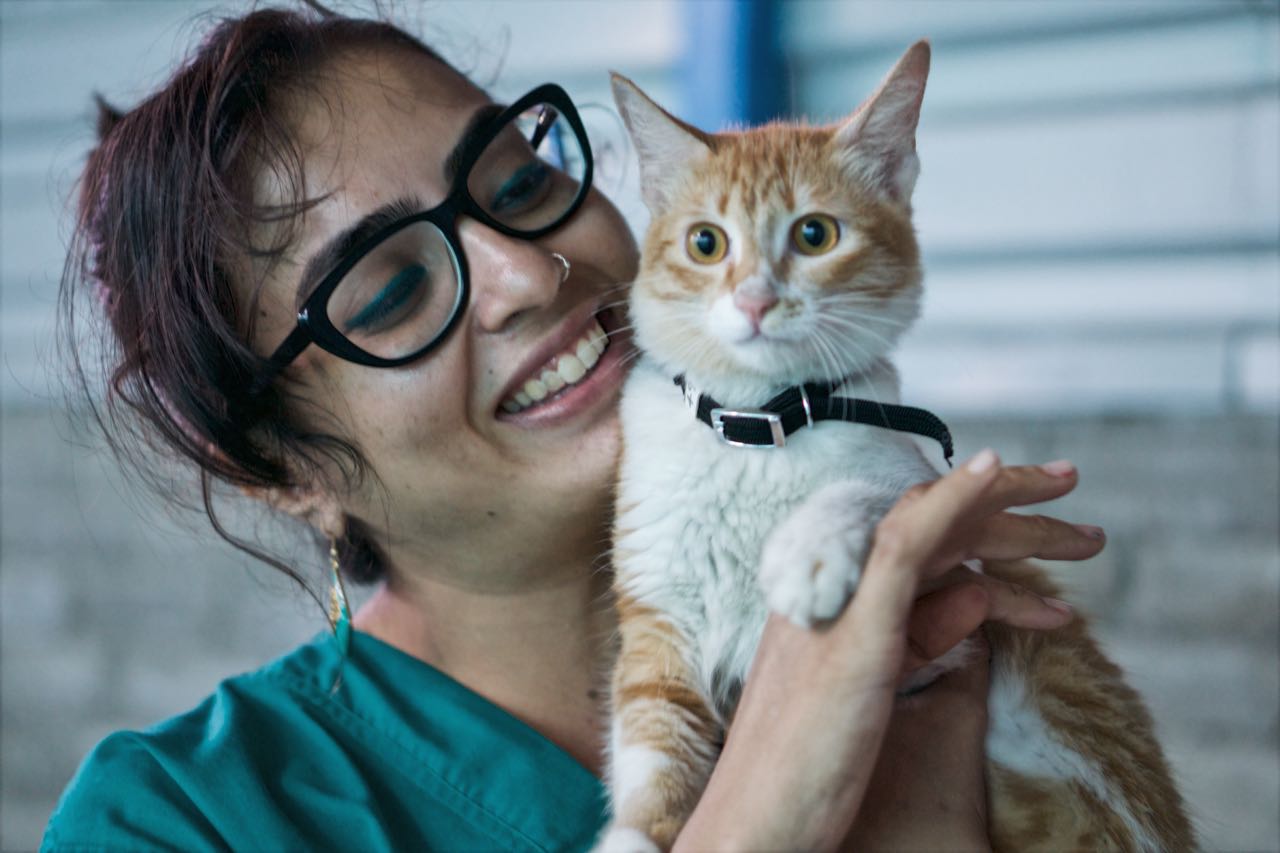Here’s the story of how I found my true calling.
My dad has a favourite quip that comes out at most parties and social gatherings. It goes something along the lines of: “How many times have we asked toddlers what they want to be when they grow up and they give us adorably ambitious answers like ‘engine driver’ or ‘fighter pilot’. This one (gestures towards me) has been claiming ever since she was capable of speech that she wants to be an animal doctor. And she stuck to that childhood ambition of hers!”
He’s right. I’ve wanted to be a veterinarian for as long as I can remember. I remember that my father would tell me the story of Jack and the Beanstalk to lull me to sleep and I could not imagine why Jack and his mother would want to sell Buttercup, their cow. I always knew my life would be enriched by animals. Growing up, my mother regaled me with tales of the various pets that she had while growing up. These ranged from dogs (their names were Sunny, Tessie and Delphy; short for Philadelphia), to a baby monkey (christened Bindu Devi) to a young doe, even! I yearned to be able to have such stories of my own as well some day. From the age of 3 years, I was determined to take the path that would make me an animal doctor. Only later did I learn that the term for it was ‘veterinarian’. I painstakingly learned how to pronounce it and would declare it often.

Image cortesy: Shutterstock
Cut to adulthood, I had my BVSc&AH (Bachelor of Veterinary Science and Animal Husbandry) in my hand. I’ve found it quite the karmic incidence that I was 23 years old when I graduated. This means it took me two decades to unlock the biggest door that would lead me to my dream profession: getting my actual degree. Throughout my college years, I tried my best to volunteer here and there, trying to gauge what I had an aptitude for and what suited me.
I loved Pathology. It always fascinated me, but I could never see myself veering towards research; a life in a sterile white lab coat, pushed to write scholarly articles, or examining slides under microscopes. Wildlife has always been such a big draw for me, too, so I spent the weekends of my second and third year traversing the distance between Khadki (where my home was) to Katraj (where Pune’s zoological park is), oftentimes dangling outside the door of PMPML buses. Despite the euphoric experiences of having a baby bear high five me after I fed him a banana and getting a tiger into a squeeze cage to collect a blood sample, the monotony was aggravating. I learned that wildlife medicine, if restricted to urban zoological parks, is less of a medical challenge and more of a bureaucratic headache and an unflinching routine. I didn’t see myself being sufficiently challenged.
In the same spirit of exploring different avenues, I decided to try volunteering at RESQ Charitable Trust. Those days, RESQ used to be in Baner. On my very first day, I was asked to supervise a kitten while it got some intravenous fluids. When enough fluids had gone in, I accidentally flicked the fluid rate to full instead of stopping it, so when I removed the scalp vein set, the kitten was doused in saline. How embarrassing! Ayesha, who managed RESQ then, was surprisingly not angry at me. She asked me to take the kitten out into the garden and spend some time with it in the sun. I sat on the grass with the tiny kitten on a cushion on my lap. She was the victim of a hit-and-run accident and the people who ran over her were conscientious enough to bring her to RESQ. Now that I look back at that memory, I remember stroking the comatose kitten in the warm sunlight and feeling akin to a bull in a china shop. Feeling like all I was good for was knocking things over or making situations worse than they already were. Later, I used a blow dryer to dry off the kitten and she was taken for an X-ray. Unfortunately, she had suffered a complete spinal fracture and did not make it. As I stood there, watching Ayesha counsel the reporters and let them know that the cat was finally free of suffering, I knew that this was it for me. I’d be there for the animals that had no one, I’d make sure they got no less than what a pet animal needed and deserved, and if they could not be saved by any medical means possible, I would be there to make sure that the end is peaceful for them.

Image courtesy: RESQ Charitable Trust
For me, it was never about monetary gain. Everyone cautioned me that a life as a shelter vet never translated to a hefty wallet. And I was fine with that. After college got over, I realized just how much of a lacuna there was in shelter medicine. People flocked away from opportunities to work for street animals because it was never the most lucrative job out there. But that had never been a point of contention for me.
My family, while fully supportive of my dream, wanted me to at least complete my Masters degree because they harboured the hope that someday when I was over being ‘noble’, I would take a higher paying job in the private or the government sector and the Master’s degree would look good on my resume. I, however, tanked the all-India entrance exam for Masters. It was not a happy feeling. I felt directionless because my parents were absolutely insistent that I pursue a career that was financially fulfilling for me. Personally, I thought I could get by just fine with a Bachelor’s degree because theoretical studies were just not my cup of tea.
Then came the fateful day when my friend and junior, Chinar, who was volunteering at RESQ at the time, told me that RESQ was looking to hire fresher vets. I coaxed my parents for a gap year just so that I could get some work experience. If a movie were to be made about my life, this is where the voice of Morgan Freeman would interject and solemnly declare, “It was going to be a lot longer than a year”.
Indeed, because this time around when I joined RESQ as an actual employee, I felt like I was actually making some impact with the knowledge that I had. From day one, Neha and Fiyana (who run the organisation) threw me into the deep end and although I struggled, I learned so much. If you look at RESQ's stats, annually we impact the lives of thousands and thousands of animals. It's a little staggering, really: to realise just how many lives I have managed to better just by deciding to follow a whim!
Successful surgeries. Getting paralyzed dogs to walk. Getting to see the incredible marvel of puppies that were stricken with parvo so bad they couldn't even get up, to gambolling around and demanding love and attention. Being able to BEGIN to quantify the rabies problem in Pune. Getting to talk to first time pet owners and make them understand how they care for the newest member of the family. Seeing once-abandoned pedigree dogs get their well deserved second chance at a loving home. Large animal rescues in the dead of the night. Traversing the length and breadth of the city in the treatment vans. Looking death in the eye every single day, sometimes losing but very importantly, sometimes winning. RESQ was where I've had the opportunity to experience all that and more.

3-year old Indrakshi didn't think that she would be a shelter vet. She certainly didn't decide to be one. All she knew was that she wanted to be able to help animals. 23-year old Indrakshi didn't think that she could be a shelter vet, either. It's the shelter vet life that chose her and made her realise her true potential and made her realise what truly made her happy.
So the title of this is a tad misleading. I didn't ever choose to be a shelter vet; I meandered around with my dream and this happened to be the destination that actually made those dreams turn into a reality.